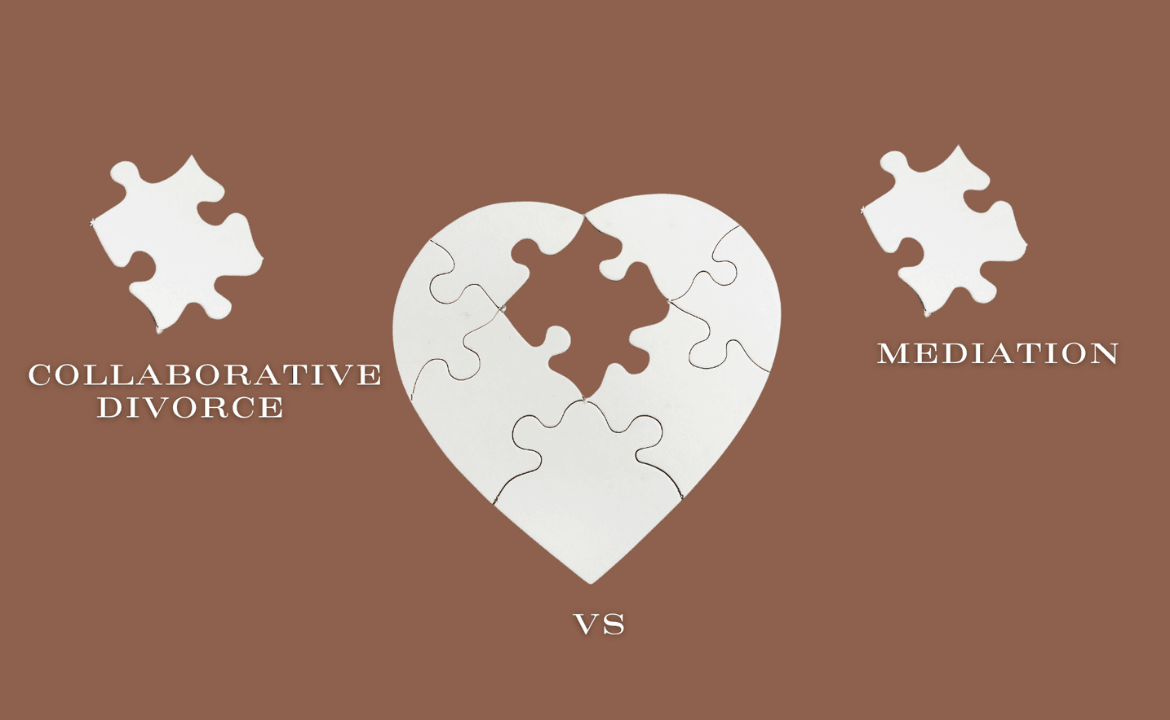What This Article Is About
This article provides a summary of New Jersey divorce laws and court process, including:
- New Jersey’s Residency Requirements
- New Jersey’s Grounds For Divorce
- New Jersey’s Equitable Division of Property
- New Jersey’s Spousal Separation Laws
- How New Jersey’s Determines Child Custody
- How New Jersey’s Courts Calculate Child Support
- How New Jersey’s Courts Determines Spousal Support
- The Mediation Process
- Name Change of Spouse
Introduction
An evolving history of progress in New Jersey’s divorce laws
Over the past few decades, New Jersey’s divorce laws have become more equitable and less complex in the following areas:
The courts have encouraged alternative dispute resolution methods and, in 2007, adopted the no-fault divorce process. This means that spouses seeking a divorce no longer need to prove fault to obtain a dissolution of their marriage.
Allowing no-fault divorce reduced conflict and animosity between divorcing spouses, making the process less emotionally charged and more accessible to produce a fair and just outcome.
Alimony and Reform Act
In 2014, New Jersey enacted the Alimony Reform Act, which resulted in more straightforward guidelines for how parties apply for and the grounds for which the court decides modification and termination of alimony. Making the alimony process more predictable and, therefore, reducing unnecessary litigation and expenses for the parties.
The Alimony and Reform Act also made progress on retirement and cohabitation on alimony payments by reducing its complexity and clarifying when and how alimony can be modified or terminated, thereby reducing disputes over these issues.
The 2020 New Jersey Child Support Guidelines
The updates allowed for more accurate child support calculations: The updated guidelines ensure that child support amounts better reflect the current economic realities, including the cost of living, healthcare, and childcare expenses.
Alternative Dispute Resolution
Over the past few years, the New Jersey court system has become more active in encouraging parties to resolve their disputes through mediation and collaborative divorce methods.
These approaches encourage divorcing parties to work out their contentious issues and commit to a fair and mutually beneficial divorce settlement.
While divorce laws evolve and change, let’s look at some of New Jersey’s fundamental divorce laws and processes.
We begin with the residency requirements for filing and litigating one’s divorce case in New Jersey.
Residency Requirements
Residency requirements must be met in New Jersey before a court has the authority to hear or grant a divorce. The reason for residency requirements is to ensure that the state has jurisdiction over the parties and their divorce case, which authorizes the court to issue orders related to property division, alimony, child custody, and support.
Residency rules
At least one of the spouses must have been a resident of New Jersey for at least one year and within the twelve consecutive months immediately before filing the divorce complaint.
Legal Tip
The statement of proof of residency in the divorce papers must include providing specific information about the length of the party’s residence in New Jersey and the address where the filing spouse has lived.
Where to file the complaint
The divorce complaint should be filed in the Family Division of the Superior Court in the county where the filing spouse resides.
Grounds For Divorce
New Jersey allows for both no-fault and fault-based grounds for divorce.
No-Fault Grounds for Divorce – Irreconcilable Differences
No-fault divorce is the most commonly used ground for divorce because it does not require proving fault. The only requirement is that the irreconcilable differences between the spouses have existed for at least six months.
The party filing under the no-fault option must merely assert in the divorce papers that the marriage has broken down due to irreconcilable differences between the spouses and that there is no reasonable prospect of reconciliation.
Fault-Based Divorce
Legal grounds for fault-based divorce include:
Adultery: One spouse engages in a sexual relationship with someone other than their spouse. The accusing spouse must provide evidence of the adulterous relationship.
Desertion: One spouse has willfully abandoned the other for at least 12 months. The abandonment must be continuous and without justification or consent from the other spouse.
Extreme Cruelty: One spouse has treated the other in a way that endangers their safety or health, making it unreasonable to continue living together.
Addiction: One spouse has a chronic addiction to drugs or alcohol for at least 12 consecutive months after the marriage.
Institutionalization: One spouse has been institutionalized for mental illness for at least 24 consecutive months after the marriage.
Imprisonment: One spouse has been imprisoned for at least 18 consecutive months after the marriage.
Other reasons why a party may choose the fault-based option:
Moral and Emotional Validation
One spouse might feel compelled to assert that the other spouse’s misconduct, such as adultery or domestic abuse, should be officially recorded in the divorce proceedings.
Proving fault can provide a sense of vindication and closure, particularly in cases involving spousal betrayal or physical and emotional harm.
Potential Financial Benefits
In some cases, demonstrating fault can affect alimony awards. A spouse proven to have committed adultery or extreme cruelty can result in a more substantial alimony award to the innocent spouse.
Since New Jersey follows equitable distribution principles in the division of marital property, a divorce case based on fault, say infidelity, may influence the court’s decision, especially if it is proved that the cheating spouse spent significant sums of money on the affair.
Custody and Support
Evidence of misconduct, such as physical and emotional abuse or addiction, can influence custody decisions. Given that Courts will prioritize the child’s best interests, a parent’s harmful behavior can be a critical factor in the court’s determination of child custody and the amount of child support awarded to the custodial spouse.
Leveraging Bargaining Power
The threat of a fault-based divorce can increase the innocent spouse’s bargaining power in settlement negotiations. The accused spouse usually wants to settle out of court, such as in a confidential mediation, to avoid public exposure of their misconduct.
Legal Tip
Wellness Tip
Legal Separation
In New Jersey, legal separation is not a recognized legal status. However, couples who wish to live apart without divorcing have several legal options.
The spouses can enter into a legally binding separation agreement.
A separation agreement is a legally binding contract between spouses who wish to live apart but do not want to file for divorce.
The separation agreement usually covers property division, spousal and child support, custody, and visitation. Once the contract has been signed, it can be enforced by the courts should one party fail to comply and, in whole or in part, breach the agreement.
Since a separation agreement is legally binding, it should be drafted or reviewed by a divorce or family law attorney to ensure that it conforms to legal standards and adequately protects the legal rights of both parties.
Converting separation into a divorce decree.
If the couple later decides to divorce, the separation agreement can be converted to a divorce through the legal process.
New Jersey’s Division of Property Laws – Equitable Distribution
New Jersey’s approach to property division in divorce cases is based on equitable distribution rather than community property laws. This means that marital property is divided in a manner deemed fair and equitable by the court based on various factors related to the marriage and circumstances of each spouse.
The difference between marital and separate property:
Marital property is all assets and debts acquired by either spouse during the marriage, regardless of whose name is on the title.
Separate property is the assets and debts that one spouse owned before the marriage or acquired individually by gift or inheritance during the marriage.
Separate property is not marital property and, therefore, is not subject to equitable distribution.
Factors considered in equitable distribution
The court uses its best discretion to divide marital property fairly but not equally as in community property states.
Courts consider a variety of factors in determining an equitable and fair distribution, including:
- The duration of the marriage.
- The age and health of the parties.
- The income and earning capacity of each party.
- The established standard of living of the parties.
- The financial needs of each spouse.
- Each spouse’s financial and non-financial contributions to the marriage.
- Education and career sacrifices made during the marriage.
- The separate property of each spouse.
- Any other factors the court deems relevant.
Watch New Jersey Attorney Jamie Berger Discuss How Much Divorce Costs In New Jersey.
Child Custody
There are two types of child custody:
Legal Custody refers to the parental right to make all significant decisions about the child’s welfare, including education, health care, and religious instruction. Parents can share legal custody, which is joint legal custody, or the court can award one parent sole legal custody.
Physical Custody refers to the parental right to have the child live with the parent and who is responsible for the child’s day-to-day care. Physical custody can be either sole or shared jointly between the parents.
Contested Issues concerning child custody are usually resolved by mediation.
Factors that the court considers in determining child custody include:
- The willingness of the parents to agree, communicate, and cooperate regarding the child.
- The relationship between the child and each parent.
- The stability of the home environment is offered by each parent.
- The child’s needs and the ability of each parent to meet those needs.
- The preference of the child, assuming the court deems the child to be of sufficient age and maturity.
- The physical and mental fitness of each parent.
- Whether the parents’ job responsibilities impact their ability to care for the child.
- The geographical proximity of the parents’ homes.
- Whether there is a history of domestic violence or abuse.
Child Support
In New Jersey, child support is a financial obligation paid by one parent to the other for the expenses associated with raising their child. The New Jersey courts follow specific guidelines and procedures to ensure that child support is fair and meets the child’s needs.
Child support in New Jersey is calculated using the New Jersey Child Support Guidelines, which factor in:
- The income of both parents
- The number of children requiring support
- The amount of time each parent spends with the child.
- The costs such as childcare, health insurance, and medical expenses.
Support Order
The calculated amount becomes the basis for the child support order. The court issues a formal order specifying the amount, frequency, and duration of the payments.
Modification of Child Support:
Either parent can request a modification of the child support order if there is a significant change in circumstances, such as:
- Change in Income: Substantial increase or decrease in either parent’s income.
- Change in Custody or Parenting Time: Changes in the custody arrangement or the amount of time the child spends with each parent.
- Change in Child’s Needs: Increased expenses due to medical, educational, or other needs.
Alimony (Spousal Support)
New Jersey divorce courts consider various factors when determining spousal support, including the amount and duration of alimony.
These factors include, but are not limited to:
- The actual need of the spouse requesting alimony and the ability of the other spouse to pay.
- The length of the marriage, with longer marriages typically resulting in longer alimony durations.
- The age and physical/emotional health of both parties.
- The standard of living established during the marriage and the likelihood that each party can maintain a reasonably comparable standard of living.
- The earning capacities, educational levels, vocational skills, and employability of both parties.
- The length of absence from the job market of the party seeking maintenance and the party’s custodial responsibilities for any children.
- The time and expense necessary for the supported spouse to acquire sufficient education or training to enable them to find appropriate employment.
- The financial and non-financial contributions of each party to the marriage, including contributions to the care and education of the children and interruption of personal careers or educational opportunities.
- The income available to either party through investment of any assets held by that party.
New Jersey Child Support Enforcement Services
PO Box 716
Trenton, New Jersey 08625-0716
Call Center: (877)- NJKIDS1 (655-4371)
The Mediation and Collaborative Divorce Process
Mediation is a form of alternative dispute resolution where a neutral third party, known as a mediator, helps divorcing couples negotiate and reach agreements on various issues such as property division, child custody, and support.
Mediation is a voluntary, confidential, and cooperative process for resolving disputes instead of litigating them in court.
New Jersey encourages divorce litigants to consider using the collaborative divorce dispute resolution method.
In collaborative divorce, each spouse retains a specially trained collaborative attorney. These attorneys and their clients work with neutral professionals, such as financial advisors, child specialists, and mental health coaches, within a collaborative framework to assist the parties in reaching an informed and fair resolution of their divorce.
Name Change of Spouse
In New Jersey, if a spouse wishes to revert to their maiden name or a previous name, they can include this request within the body of the divorce complaint or in the answer to the opposing party’s complaint.
If the spouse did not include the request in their initial filings, they can still request their name be changed at any point during the divorce proceedings by informing their attorney or the court.
Name change after divorce has been finalized:
If you decide to change your name after the divorce has been finalized and did not request it during the divorce proceedings, you can still pursue a name change. There are online services that will handle the name change process for you.
New Jersey Family Law Courts
Family-related cases are heard in the Family Division of the Superior Court.
Sources And References
New Jersey Contested and Uncontested Divorces









































